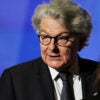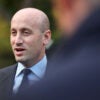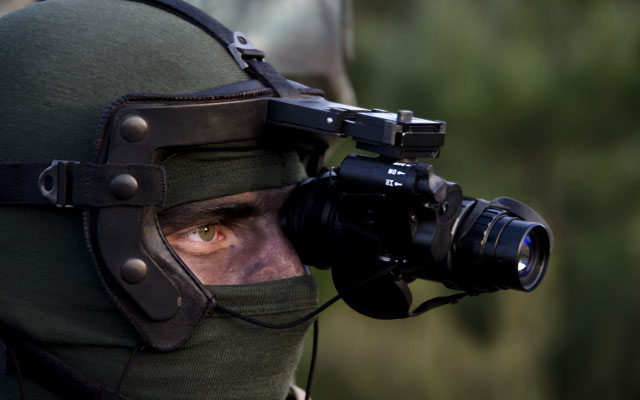President Obama’s love for America’s unconventional warriors is taking the “special” out of U.S. special operations forces (SOF), according to a recent article by Richard Russell in Foreign Policy’s national security section.
Russell quotes former head of Joint Special Operations Command General Stanley McChrystal that Presidents get the idea that using SOF “is satisfying, it’s clean, it’s low risk, it’s the cure for most ills.” Using SOF in some cases can be a cleaner option due to its ability to conduct missions covertly, but Russell warns that the U.S. “must guard against gutting its traditional and foundational military capabilities out of love of the glamour for Special Operations Forces.”
Since the Navy SEALs’ famous raid on Osama bin Laden’s complex in 2011, stories recounting the lethal expertise and courage of America’s SOF have increasingly garnered headlines. The successful raid in Libya carried out last month by the SEALs demonstrates SOF’s reach and capability as well as Washington’s growing reliance on these elite forces.
While popularized for such kill or capture “kinetic” missions, SOF, which functions out of U.S. Special Operations Command (USSOCOM), fulfills a range of other low-intensity “non-kinetic” roles such as training and equipping foreign militaries and gathering intelligence behind enemy lines. In fact, this other, less-heralded mission set is arguably more important to USSOCOM’s ranks and their contributions to broader U.S. security.
In the meantime, pundits, Hollywood, and the Obama Administration have misrepresented how SOF operate. They are extremely efficient and lethal so long as they have adequate conventional support, but the Obama Administration has disproportionally increased its support of SOF while gutting resources for the conventional branches of the armed services.
USSOCOM Commander Admiral William McRaven has repeatedly mentioned the critical roles that conventional forces and civilian services play in SOF’s overall success. Without logistical and operational support from air, sea, and land forces, SOF might have to take up these responsibilities alone, thus leaving behind a larger footprint and making them less “special.”
The ditched raid in Somalia last month due to numerous unexpected enemy forces, which was probably due in part to a lack of intelligence, is an example of how SOF cannot operate completely independent of support services.
As terrorist networks expand throughout the Middle East and Africa, SOF’s role in combatting these new threats will similarly expand. Dealing with these global insurgencies will require a broader and more sustainable counterterrorism strategy like the one offered by The Heritage Foundation’s Counterterrorism Task Force.
SOF and conventional forces have different but complimentary capabilities, and it takes both to win decisively in war. Therefore, when employing SOF in the future, it is equally if not more important that U.S. conventional forces are also sufficiently funded, trained, equipped, and ready to go.
Clark Irvine is currently a member of the Young Leaders Program at The Heritage Foundation. For more information on interning at Heritage, please click here.
































